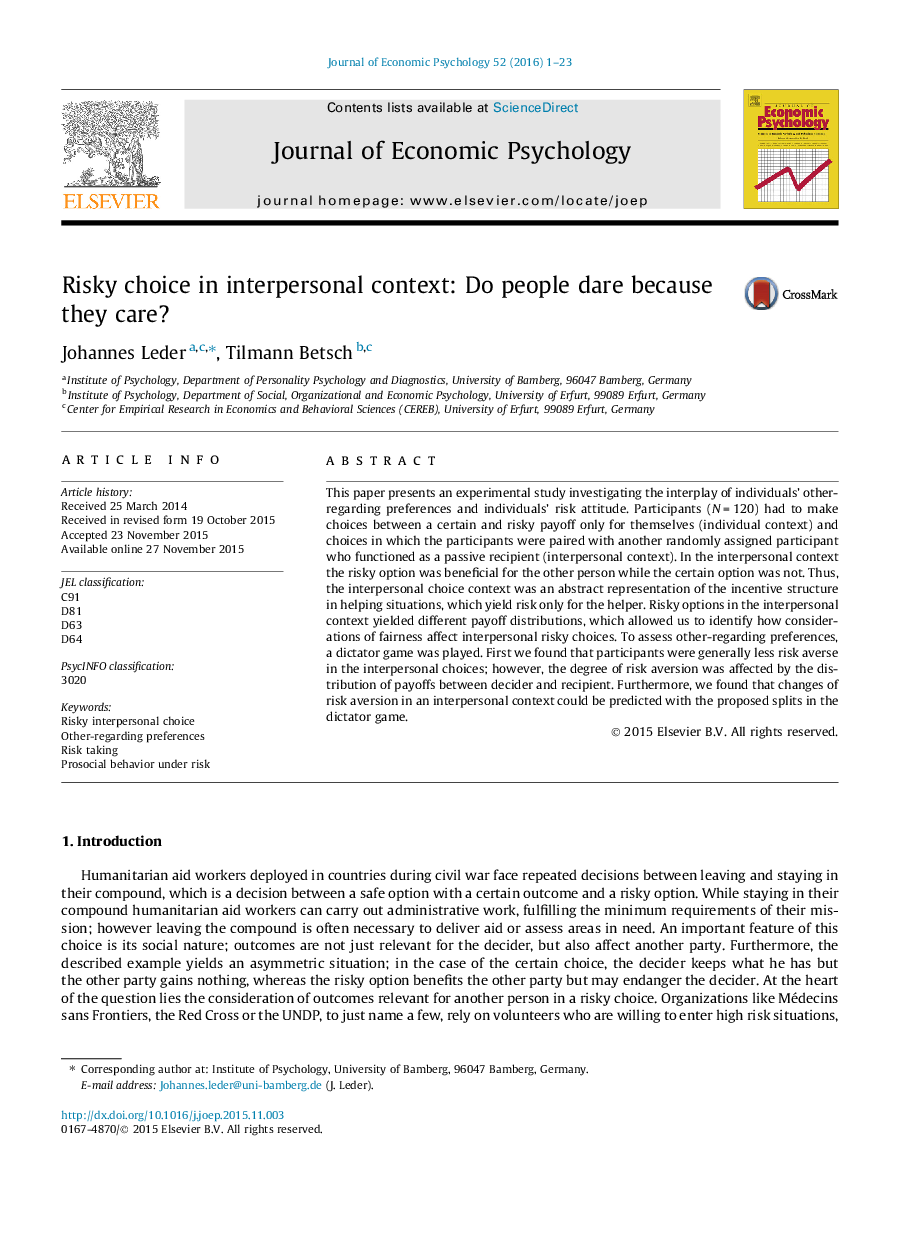| Article ID | Journal | Published Year | Pages | File Type |
|---|---|---|---|---|
| 884882 | Journal of Economic Psychology | 2016 | 23 Pages |
•We elicited risk aversion in individual and in interpersonal choice contexts.•Equity of lotteries’ payoffs in interpersonal choices differed for the decider and recipient.•We elicited other-regarding preferences using a dictator game.•Risk aversion decreased in interpersonal context compared to individual contexts.•Equity of payoffs and other-regarding preferences predicted decrease of risk aversion.
This paper presents an experimental study investigating the interplay of individuals’ other-regarding preferences and individuals’ risk attitude. Participants (N = 120) had to make choices between a certain and risky payoff only for themselves (individual context) and choices in which the participants were paired with another randomly assigned participant who functioned as a passive recipient (interpersonal context). In the interpersonal context the risky option was beneficial for the other person while the certain option was not. Thus, the interpersonal choice context was an abstract representation of the incentive structure in helping situations, which yield risk only for the helper. Risky options in the interpersonal context yielded different payoff distributions, which allowed us to identify how considerations of fairness affect interpersonal risky choices. To assess other-regarding preferences, a dictator game was played. First we found that participants were generally less risk averse in the interpersonal choices; however, the degree of risk aversion was affected by the distribution of payoffs between decider and recipient. Furthermore, we found that changes of risk aversion in an interpersonal context could be predicted with the proposed splits in the dictator game.
